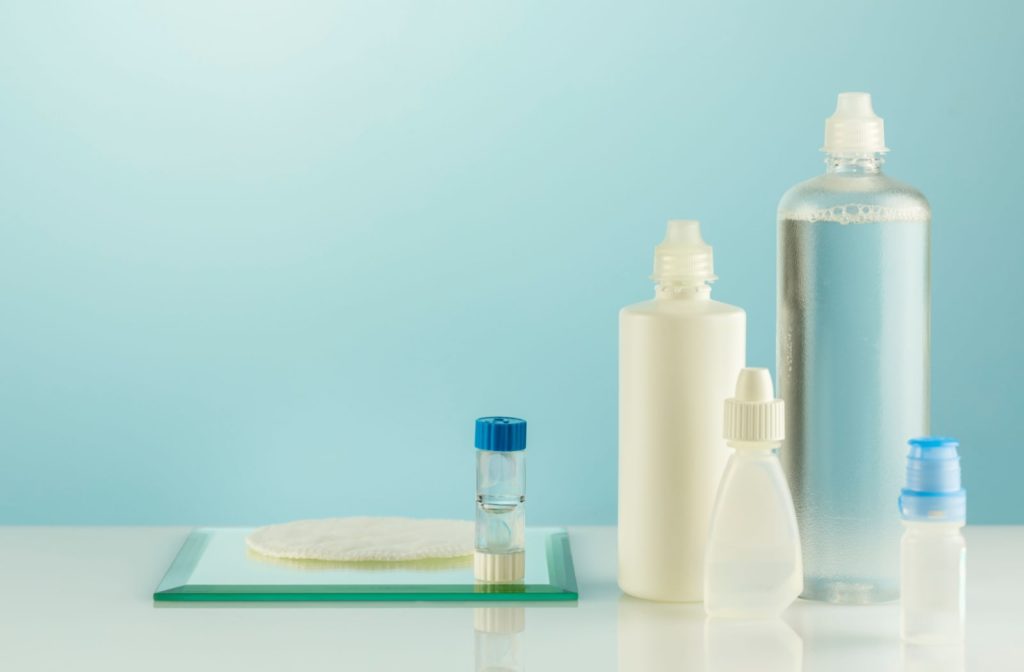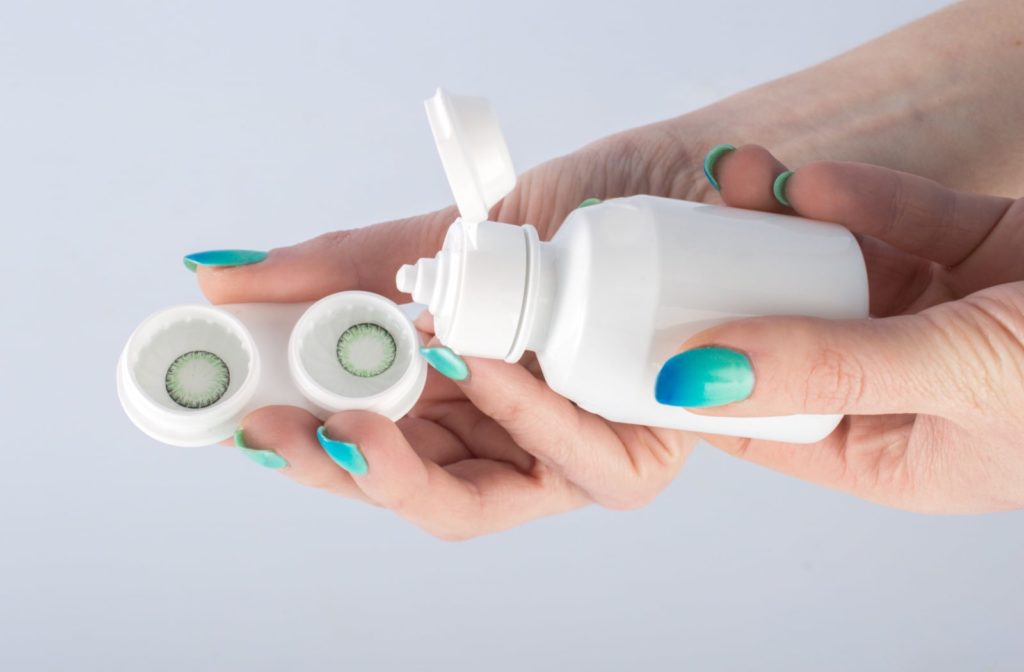A good pair of contact lenses go a long way in helping you see clearly. And after all the time you spent getting your exact prescription fitted, you can’t just toss them in a case and be done with it. Keeping them in proper condition is important for your eye health and the life of your lenses.
Store your contact lenses in a proper case with fresh cleaning solution. Good storage is essential to preventing infections, irritations, or damaged contacts. Your contacts are precious, so keep them clean, and they’ll help you maintain healthy eyesight.
Handling Contact Lenses
Always wash your hands before handling your contact lenses. We touch a lot during the day, and if you don’t wash your hands, you could transfer dirt and bacteria to your contacts and, ultimately, your eyes. Bacteria can cause keratitis, an eye infection that can scar your cornea, the clear dome at the front of your eye. When you clean your lenses, rub them gently using a lens-cleaning solution and rinse them with the same solution. Don’t use tap water, and never use saliva.
Second, ensure that your contact lens case is clean. Rinse it with fresh solution and allow it to air dry. Make sure it’s completely dry before placing your contacts inside to avoid any potential for bacteria build-up. Cases don’t last forever. If it’s cracked, it could let in contaminants. Generally, you should replace your case every 3 months, even if it looks fine.

Using the Right Solution
Multipurpose Solution
Storing your contacts in a multipurpose solution is the most common method of storage. Multipurpose solutions are designed to clean, store, rinse, and disinfect your contact lenses. Multipurpose, indeed!
When you’re done wearing your contact lenses, fill your contact lens case with fresh solution and place them inside it. Reusing the solution in your case may be tempting, but using the new solution daily helps your contacts remain clean and microbe-free.
Hydrogen Peroxide Systems
Some people can’t use regular multipurpose solutions because of allergies or other irritations. In this case, your optometrist may recommend hydrogen peroxide. It removes bacteria from contact lenses effectively but requires a different storage method.
Hydrogen peroxide needs to be neutralized before use, or it could cause issues. To do this, it comes with a special case that reacts with the solution. It takes about 4–6 hours, but the hydrogen peroxide should be converted to saline when it’s done.
Once the solution is neutralized, you can safely store your contacts in it. Replace this solution daily, just as you would a multipurpose one.
Saline
Unfortunately, saline will not disinfect your lenses, but it still has uses. You can rinse your contacts with saline after cleaning them with another method. If you’re ever in doubt, your optometrist will direct you to the right choices.
Can I Swim with Contact Lenses?
With a comfortable pair of contacts, you may easily forget you’re wearing them. Still, never expose your contact lenses to water. This includes tap, distilled, ocean, or water from a swimming pool or jacuzzi. Even in a bath, you should ensure droplets don’t splash into your eyes.
It may sound harmless, but microscopic organisms or bacteria in the water can attach to your contact lens. It’s the same reason you shouldn’t rinse your contacts with plain water. If you get water on your lens, remove and clean it immediately—or throw it away if it’s disposable. Infection is rare, but you can always get more lenses. You only have 2 eyes.
Is There a Problem with My Lenses?
If you don’t store your lenses properly, you could run into many problems. Some are minor, some severe, but they can all affect your vision. Common issues from improper contact lens storage include:
- Bacterial growth
- Scratched lenses
- Misshapen lenses
- Eye irritation
- Impaired vision
Do I Have an Eye Infection?
Eye infections always pose a risk, but you can watch for early signs. If you notice any of these symptoms, let your optometrist know right away:
- Blurred vision
- Pain
- Redness
- The feeling of a foreign body in your eye
- Mucus discharge
- Excessively watery eyes
- Light sensitivity
Replacing Lenses
It’s good to know when to replace your contact lenses. Wearing old, torn, or damaged lenses may expose your eyes to additional risks, even if you take proper care of them. Your optometrist will tell you the recommended replacement schedule.
Follow it closely, but if your contacts become damaged or you notice a vision change, let your doctor know. You may need to replace them immediately, even if it’s before their scheduled replacement date.
Getting the Most Out of Your Contacts
Storing your contact lenses properly is crucial to protecting your overall vision. It’s a lot of responsibility, but when it comes to your eye health, it’s worth the extra precautions. Fortunately, you’re not in this alone!
At 2020 Eyecare Ohio, our support doesn’t stop once you get your contact lenses. Our team is here for you, so if you have any questions about contact lens care or need a checkup, book an appointment with us! We’re right down the road and ready to support your vision.



